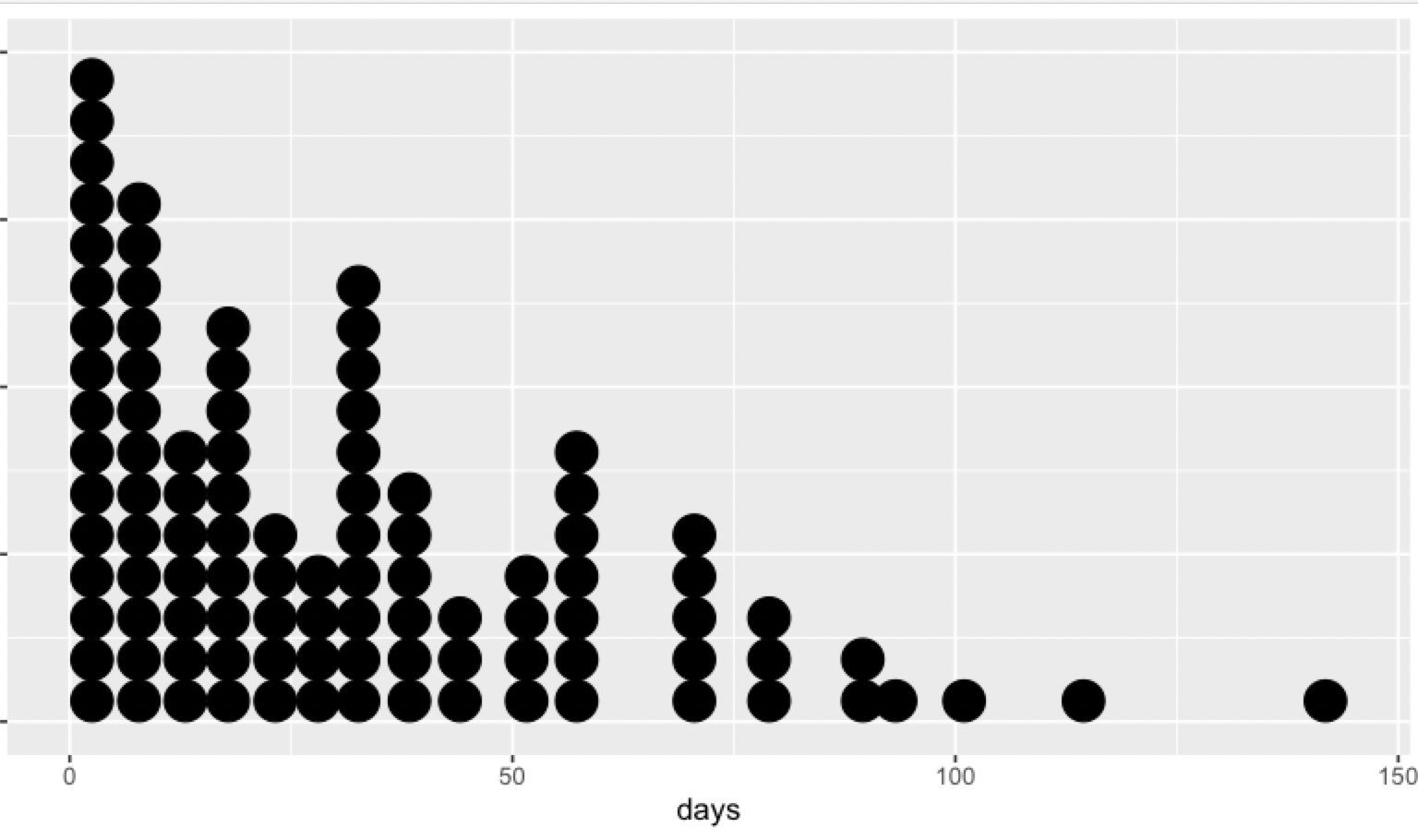How long to Omicron?
In the Herald today, Covid 19: Officials predict when Auckland Omicron outbreak will happen
They say 2-4 weeks. That looks to me like an estimate of the midpoint of the uncertainty: we’re thinking of a uncertainty distribution, and the middle is at about 3 weeks, say 2-4 weeks. It doesn’t look like a prediction range.
The reason it doesn’t look like a prediction range is that the time until an Omicron outbreak isn’t like boiling an egg, it’s like getting in a minor car crash. Every day, there’s a small risk that Omicron will escape the MIQ controls and get out into the community. The risk is higher (per day) than it was for Delta, because Omicron is more transmissible and because we have a lot more cases in MIQ than we ever had before. It may be lower because we may have fixed up gaps in MIQ that let cases in before (though we don’t actually know how the August outbreak started).
Lots of processes in the world work roughly like this: there’s a small chance at each point in time, but there isn’t any memory — getting through today doesn’t make tomorrow safer or less safe. The distribution of times to the first event in a memoryless process with a median of three weeks looks like this:
If the experts are right that 3 weeks is the 50/50 bet for how long we have, the range of possibilities will be much broader than 2-4 weeks. If we’re very lucky, the outbreak could be 2-3 months away. If we’re very unlucky, it could start today. Or yesterday.
Thomas Lumley (@tslumley) is Professor of Biostatistics at the University of Auckland. His research interests include semiparametric models, survey sampling, statistical computing, foundations of statistics, and whatever methodological problems his medical collaborators come up with. He also blogs at Biased and Inefficient See all posts by Thomas Lumley »
